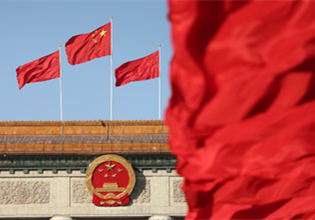Inner Mongolia rolls out policies to upgrade potato industry
Inner Mongolia has recently introduced six measures to advance the development of the potato industry and upgrade its supply chain.
The measures focus on supporting the cultivation of potato seeds, implementing single-crop increasing projects, aiding in the construction of modern cold storage facilities at production sites, enhancing the brand influence of potatoes, strengthening scientific and technological support for the potato industry, and amplifying financial support across the industry.
Furthermore, Inner Mongolia has established a dynamic measure adjustment and optimization mechanism to dynamically adjust support measures and ensure the effective utilization of these measures.
Leading the country with its comprehensive production capabilities, Inner Mongolia's potato industry has achieved a total industrial output value of over 16 billion yuan ($2.19 billion).
The region is renowned for its superior potato seed breeding capacity, ranking first in the country in terms of both breeding area and yield.
Trade in virus-free potato seeds there accounts for over 35 percent of the country's total, satisfying the production seed demands of more than 13 million mu (866,666.67 hectares) of potato cultivation nationwide.
The quality of Inner Mongolia's single potato products is also extraordinary.
Two major potato production areas along the feet of the Yinshan Mountain and the Greater Hinggan Mountains Range account for 90 percent of the region's total planting area.
The average yield of fresh potatoes per mu has reached 1,637 kg, surpassing the national average yield of 322.5kg. The starch and dry matter content is 1-2 percentage points higher than the national average, further highlighting the superiority of Inner Mongolia's potato industry.
Inner Mongolia, one of the most important processing areas for starch and potato chips in China, boasts the country's largest refined starch processing enterprise and largest potato chip processing enterprise.
The region accounts for approximately 30 percent, 35 percent, and 60 percent of the country's total output of starch, full starch and potato chips, respectively, underpinning its huge processing scale.
In spite of these advantages, comparisons with developed countries and regions reveal that the development of Inner Mongolia’s potato industry is hindered by various constraints. These include limitations in per capita output improvement, inadequate technological support, difficulties in corporate financing, a lack of modern storage facilities, and weak brand presence.



 Print
Print Mail
Mail





